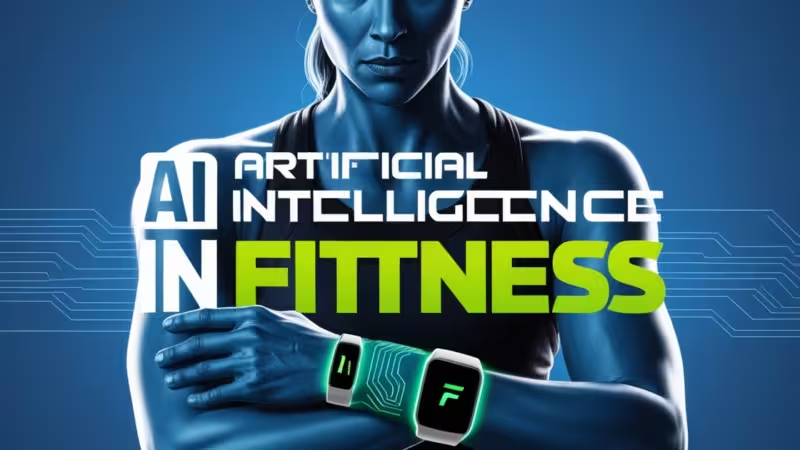Microsoft’s AI Vision And Strategy

Microsoft’s Ambitious AI Roadmap
As a heavyweight in the tech industry, Microsoft has always pushed the envelope, constantly innovating to redefine what’s possible. Lately, the spotlight has shifted to the exciting world of artificial intelligence (AI), and Microsoft‘s vision for the future is incredibly bold.
Embracing the AI Revolution
Microsoft’s approach to AI is rooted in the belief that this transformative technology will change the way we live, work, and connect with each other. Whether it’s empowering businesses to boost their operations or lending a hand to individuals in their daily lives, Microsoft is dedicated to unlocking the potential of AI to enrich lives across the globe.
Democratizing AI Capabilities
A key aspect of Microsoft’s AI vision is to make this powerful technology accessible to everyone. Rather than letting it be an exclusive tool for tech giants and research facilities, Microsoft is working hard to ensure that organizations and people from all walks of life can benefit from AI.
This commitment is evident in projects like Azure Cognitive Services, which empowers developers to seamlessly integrate AI capabilities into their applications, making the technology simpler and more accessible to everyone. Additionally, the Microsoft Power Platform allows individuals, even those without a technical background, to create smart solutions, further democratizing the power of AI.
Responsible AI Development
While Microsoft’s vision is ambitious, they’re also keenly aware of the ethical implications and possible risks tied to AI. The company has put together a solid framework for the responsible growth of AI systems. This framework is all about ensuring transparency, fairness, and accountability in AI applications.
For instance, the AI Principles illustrate the company’s commitment to using AI in ways that uplift humanity, while the AI Ethics review board focuses on spotting and addressing potential harms.
Empowering Businesses with AI
For businesses, Microsoft’s AI strategy opens up a treasure trove of opportunities to spark innovation and streamline efficiency. With tools like Dynamics 365 and the Azure cloud platform at their fingertips, organizations can harness AI to simplify processes, boost customer experiences, and tap into new revenue channels.
Transforming Personal Productivity
But it’s not just businesses that stand to benefit; Microsoft is also using AI to enhance personal productivity and ease everyday tasks. Products such as Microsoft 365 and the Microsoft Graph incorporate intelligent features that assist users with everything from organizing schedules and managing tasks to content creation and knowledge sharing.
Advancing AI Research and Development
Driving Microsoft’s AI vision is a steadfast commitment to research and innovation. They’ve established a network of AI research labs around the globe, partnering with premier academic institutions and industry leaders to explore the limits of what’s possible with AI technology.
From breakthroughs in natural language processing to advancements in computer vision and reinforcement learning, Microsoft’s research endeavors are driving significant progress in the AI field.
Building an AI-Powered Future
As Microsoft charts its course through the ever-changing world of AI, the dedication to innovation, ethical growth, and making this game-changing technology accessible is unmistakable. By uplifting businesses, individuals, and researchers alike, the company is gearing up to shape the AI-powered future that’s just around the corner.
Leveraging Azure Cognitive Services for Intelligent Applications
Harnessing the Power of Azure Cognitive Services
In today’s fast-paced tech landscape, utilizing intelligent solutions has become a must for staying competitive. Microsoft’s Azure Cognitive Services provide a robust set of AI-powered tools designed to elevate applications, changing how businesses connect with customers and optimize their operations.
Text Analytics: Unlocking Insights from Unstructured Data
A standout offering within Azure Cognitive Services is the Text Analytics API, which enables developers to extract golden insights from unstructured text. This service handles a variety of natural language processing tasks like sentiment analysis, key phrase extraction, and language detection. By integrating Text Analytics into your applications, you get to better grasp customer feelings, spot emerging trends, and make informed business decisions.
Computer Vision: Elevating Visual Experiences
Another impressive feature of Azure Cognitive Services is the Computer Vision API, giving developers the power to create smart applications that can interpret and analyze visual content. This service can accomplish tasks such as image classification, object detection, and optical character recognition (OCR), enabling you to automate workflows, enhance user experiences, and extract valuable insights from images and documents.
Scenario: Retail Transformation
Take the retail industry, for instance. Computer Vision can be utilized to design innovative self-checkout experiences, allowing customers to scan items and make purchases without standing in long lines. Retailers can also leverage this service for automating inventory management, swiftly identifying products on the shelves while optimizing their supply chains.
Speech Recognition: Enabling Conversational Experiences
On top of that, Azure Cognitive Services includes the Speech service, which empowers developers to integrate speech-to-text and text-to-speech capabilities into their applications. This technology opens up doors for creating voice-activated interfaces, transcribing audio recordings, and translating spoken language in real-time, enhancing user engagement and accessibility.
Scenario: Intelligent Contact Centers
In customer service realms, the Speech service adds value by automating call handling and performing sentiment analysis in contact center applications. By assessing the tone and emotion of customer interactions, agents gain real-time insights to deliver personalized and empathetic support, ultimately boosting customer satisfaction and loyalty.
Cognitive Search: Unlocking Hidden Connections
The Cognitive Search service within Azure Cognitive Services allows businesses to create smart search experiences that go beyond just keyword-based queries. This service can identify entities, detect languages, and pull out key phrases from a wide array of content sources, making it easier for users to find relevant information and uncover hidden connections and insights.
Scenario: Enterprise Knowledge Management
In enterprise knowledge management, Cognitive Search can power intelligent search portals, seamlessly integrating data from various sources like documents, databases, and web content. Thanks to AI, these search experiences can provide more precise and contextual results, helping employees locate the information they need more swiftly and effectively.
Embracing the AI Revolution with Azure Cognitive Services
As businesses work hard to get ahead in a competitive landscape, embracing AI-driven technologies has become essential. Microsoft’s Azure Cognitive Services offer a comprehensive toolkit to help organizations of all sizes tap into their data potential, enrich user experiences, and drive innovation. By utilizing these powerful services, developers can build smart applications that redefine industry norms, paving the way for a more connected and intelligent future.
Ethical Considerations in Microsoft’s AI Development
The Pursuit of Ethical AI: Navigating the Challenges in Microsoft’s AI Development
As society increasingly embraces the game-changing potential of artificial intelligence (AI), the tech industry, more than ever, faces an urgent duty to ensure that AI technologies are developed and deployed ethically. Recognizing this responsibility, Microsoft, a front-runner in the AI space, has proactively taken this challenge seriously. The company understands that, in order to foster trust and drive positive impact, ethical considerations must always be front and center in AI initiatives. Consequently, Microsoft has made it a priority to integrate these principles throughout their AI development processes.
Transparency and Accountability
A foundational principle of Microsoft’s ethical AI framework is transparency and accountability. The company firmly believes that AI systems must operate on open and understandable decision-making processes to allow for scrutiny and oversight from both internal and external parties. This not only helps to foster trust but also reduces the risks of bias or unforeseen consequences.
Responsible Data Practices
Given that data is central to AI, Microsoft prioritizes responsible data handling. This means ensuring that data collection, storage, and usage adhere to ethical standards, protecting individual privacy and tackling bias and fairness issues. Microsoft has rolled out stringent data governance policies and has teamed up with privacy experts to devise guidelines to safeguard the rights of individuals whose data is used.
Algorithmic Bias Mitigation
Like any technology, AI systems can unintentionally perpetuate societal biases if not designed with care. Microsoft is actively addressing this challenge by investing in research aimed at identifying and mitigating algorithmic bias. This effort includes using techniques such as data augmentation, debiasing algorithms, and rigorous testing to ensure their AI models promote fairness and inclusivity.
Human-Centric Design
At the core of Microsoft’s ethical AI philosophy is human-centric design. They recognize that AI must prioritize people’s well-being, considering its effects on individuals, communities, and society. Their approach focuses on designing systems that empower and enhance human capabilities, rather than sidelining them.
Collaborative Governance
Due to the complex nature of ethical AI, Microsoft embraces a collaborative governance approach. The company actively engages with various stakeholders, including policymakers, academics, industry peers, and civil society organizations, to refine their ethical AI principles and practices. This inclusive method ensures that diverse perspectives and concerns are taken into account during the development and deployment of AI technologies.
Ethical AI Principles
A set of guiding principles forms the backbone of Microsoft’s ethical AI framework, including:
- Fairness and Non-Discrimination: Making sure AI systems don’t perpetuate or worsen existing biases and discrimination.
- Privacy and Security: Safeguarding individuals’ privacy whose data is involved in AI development and deployment.
- Reliability and Safety: Crafting AI systems that are dependable, robust, and safe for real-world use.
- Transparency and Accountability: Keeping decision-making processes for AI systems transparent and ensuring accountability for their actions.
- Human Control and Oversight: Allowing human oversight and control over essential AI-derived decisions and operations.
- Societal Impact: Reflecting on the broader societal consequences of AI, ensuring positive impacts for individuals and communities.
Putting Principles into Practice
Microsoft doesn’t just talk the talk when it comes to ethical AI; they’re actively turning these principles into real actions and outcomes. They’ve created dedicated teams and initiatives designed to integrate ethical AI practices across their products and research endeavors.
An example of this effort is the Microsoft AI Ethics & Society team, which collaborates with product groups to weave ethical considerations into AI systems’ design and development. Their responsibilities include conducting risk assessments, implementing bias mitigation strategies, and ensuring ethical AI principles are consistently upheld.
Moreover, Microsoft is taking an active role in discussions with policymakers and industry partners to influence the global conversation around ethical AI governance. They’ve contributed to creating industry guidelines and standards, advocating for a collaborative and inclusive approach to addressing AI’s ethical challenges.
Powering the Future: Microsoft’s AI-Driven Productivity Tools
The Rise of AI in Productivity Tools
Microsoft’s journey into the world of AI has been nothing less than extraordinary. As the tech giant continues to explore new frontiers, its dedication to integrating AI features into productivity tools is reshaping the experience for businesses and individuals alike.
Revolutionizing Everyday Tasks with Microsoft AI
At the center of Microsoft’s AI-powered productivity suite are tools crafted to enhance the way we work. From Office 365 to Microsoft Teams, the company has intricately woven AI features into its offerings, fundamentally changing how we tackle daily tasks.
Intelligent Assistance for Enhanced Productivity
One of the most impressive aspects of Microsoft’s AI-driven productivity tools is the intelligent assistance they provide. For instance, the AI-powered writing assistant in Microsoft Word can evaluate your text, suggest grammatical improvements, and even offer smart auto-complete options to help you produce polished and effective documents.
Boosting Collaboration and Communication
Microsoft Teams, the collaborative platform, is also equipped with AI features. Real-time translation, live captions, and intelligent meeting insights enable teams to communicate seamlessly, regardless of language barriers or differing locations.
Data-Driven Insights for Informed Decision-Making
Beyond just enhancing communication, Microsoft’s AI-driven productivity tools provide invaluable data-driven insights to help users make smarter decisions. Power BI, for instance, utilizes AI algorithms to uncover patterns in complex datasets, enabling users to enhance their decision-making processes and drive business success.
Embracing the Future of Work with Microsoft AI
As the work landscape keeps evolving, Microsoft’s AI-driven productivity tools are set to play a vital role in shaping what lies ahead. By automating repetitive tasks, improving collaboration, and delivering intelligent insights, these tools empower a more efficient, data-driven, and interconnected workforce.
Personalized Experiences for the Modern Workplace
One key advantage of Microsoft’s AI tools is their ability to provide personalized experiences tailored to individual users’ needs. By utilizing AI-driven algorithms, these tools can adapt to varying user preferences, learning styles, and work habits, facilitating a smoother and more effective workflow.
Preparing for the Future of Work
As the digital landscape continues to evolve, Microsoft’s AI-driven productivity tools are empowering organizations and individuals to navigate the challenges ahead. By automating mundane tasks, fostering remote collaboration, and providing powerful insights, these tools enable users to focus on high-value, strategic endeavors that fuel organizational growth and personal fulfillment. Consequently, Microsoft’s approach not only enhances productivity but also supports long-term success and satisfaction in an increasingly complex digital world.
Empowering Developers with Microsoft’s AI-Infused Cloud Ecosystem
Unlocking the Power of AI: Microsoft’s Cloud Ecosystem
The integration of Artificial Intelligence (AI) is fundamentally transforming how developers engage with cloud computing. In response to this shift, Microsoft has been highly proactive in empowering developers through an AI-driven cloud ecosystem. This ecosystem not only supports the creation of innovative solutions but also encourages developers to challenge traditional boundaries and explore new possibilities. Consequently, Microsoft’s approach is driving a new wave of innovation in cloud computing.
Azure Cognitive Services: Unleashing AI Capabilities
At the core of this AI-infused cloud ecosystem is Azure Cognitive Services—a robust suite of AI-powered tools and APIs. These services provide developers access to sophisticated pre-built AI models that can be easily incorporated into applications. Covering a variety of functions from natural language processing to computer vision and speech recognition, Azure Cognitive Services enables developers to enhance user experience without needing vast AI knowledge.
Azure Machine Learning: Empowering Intelligent Decisions
Closely connected with Azure Cognitive Services, Microsoft’s Azure Machine Learning (Azure ML) platform further empowers developers to create, train, and deploy complex machine learning models. By doing so, it enables applications to make more informed decisions and accurate predictions. Moreover, Azure ML provides developers with access to cutting-edge algorithms, pre-trained models, and user-friendly drag-and-drop tools, thereby significantly accelerating the development of AI solutions. As a result, developers can innovate more rapidly and effectively, leveraging advanced technology to enhance their applications.
Democratizing AI through Azure Machine Learning Studio
To further uplift developers, Microsoft has introduced Azure Machine Learning Studio—an easy-to-navigate, no-code/low-code environment that makes AI accessible to everyone. This platform empowers those without deep programming skills to create, train, and deploy machine learning models, simplifying the AI development process and allowing more developers to incorporate intelligent features into their applications.
Azure AI Responsible Development
As AI solutions continue to gain traction, Microsoft increasingly acknowledges the critical significance of responsible development and deployment. To address this, Azure AI offers a comprehensive suite of resources and tools specifically designed to assist developers in adhering to ethical guidelines while effectively mitigating potential risks. Furthermore, with advanced features such as bias detection, explainable AI, and stringent data privacy controls, Microsoft ensures that developers consistently create trustworthy and inclusive AI experiences. Consequently, these efforts underscore Microsoft’s unwavering commitment to fostering ethical AI practices and advancing technology that benefits all users.
Azure Synapse Analytics: Unleashing the Power of Data-Driven Insights
Another vital aspect of Microsoft’s cloud ecosystem is Azure Synapse Analytics, a unified analytics service that integrates enterprise data warehousing and big data analytics. This platform allows developers to harness data’s power, transforming it into actionable insights that guide business decisions. By merging Azure Synapse Analytics with the broader Azure ecosystem, developers can employ advanced analytics, machine learning, and real-time data processing to develop intelligent, data-driven applications creating exceptional user value.
Exploring the Possibilities: Microsoft’s AI-Powered Cloud Ecosystem
As the digital landscape evolves, the demand for intelligent, AI-driven solutions grows. Microsoft’s AI-infused cloud ecosystem—including Azure Cognitive Services, Azure Machine Learning, Azure Machine Learning Studio, Azure AI Responsible Development, and Azure Synapse Analytics—empowers developers to innovate and create applications that revolutionize industries and user experiences.
By leveraging these powerful tools and services, developers can focus on tackling complex problems, automating repetitive tasks, and delivering tailored experiences—all while ensuring responsible and ethical AI development. With seamless integration of these capabilities within the Azure cloud platform, developers can access a comprehensive suite of AI-powered resources, accelerating their path to crafting the next generation of intelligent applications.
Recent Innovations and Initiatives in Microsoft AI
The Future of Work with AI Enhancements
Microsoft has been at the forefront of advancing AI technology for enhancing workplace productivity. Recent findings from a McKinsey report indicate that integrating AI into daily operations can increase productivity by up to 40% in various sectors. Microsoft aims to deeply embed AI within its products to not only facilitate smarter workflows but also to enhance decision-making processes across various industries. Furthermore, by integrating these advanced technologies, the company seeks to ultimately transform how employees engage with technology. As a result, this approach is expected to drive innovation and efficiency, leading to significant improvements in productivity and business outcomes.
Introduction of Copilot and Advanced Tools
One of the standout initiatives is the rollout of Microsoft Copilot—an AI-powered assistant integrated into Microsoft 365 applications. This innovative tool leverages advanced natural language processing to assist users in drafting emails, generating reports, and even summarizing information across multiple documents. Moreover, according to recent reports, Copilot is designed to significantly reduce the time spent on mundane tasks by up to 50%. As a result, professionals can shift their focus to more strategic activities, ultimately enhancing productivity and efficiency in their work. Consequently, this tool represents a substantial step forward in the integration of AI to streamline daily tasks and empower users to maximize their effectiveness.
Strategic Partnerships in AI Research
To further accelerate AI research and development, Microsoft has strategically formed alliances with academic institutions. For instance, a notable partnership has been established with MIT’s Computer Science and Artificial Intelligence Laboratory (CSAIL). This collaboration is particularly focused on enhancing machine learning algorithms while simultaneously advancing AI ethics frameworks. As a result of these efforts, the insights gained from this partnership are expected to lead to significant breakthroughs in responsible AI, which could, in turn, influence industry standards. Consequently, these developments highlight Microsoft’s proactive approach to driving innovation in the field of artificial intelligence.
Integrating Quantum Computing with AI
In an exciting move, Microsoft is exploring the intersection of AI and quantum computing. The company recently announced new advancements in its Azure Quantum platform. By combining AI with quantum algorithms, Microsoft aims to solve complex optimization problems much faster than traditional systems. This integration could revolutionize industries that rely on data-driven decision-making, such as finance and logistics. Recent studies reveal that using quantum AI can lead to significant improvements in processing efficiency and accuracy.
AI Accessibility Initiatives for Developers
Microsoft is deeply committed to improving accessibility within its AI tools. To this end, the company has introduced several updates to its AI services, enabling developers to create more inclusive applications that cater to individuals with disabilities. Furthermore, the recent AI for Accessibility initiative provides grants to support organizations developing AI-driven tools to aid those with hearing, visual, or mobility impairments. By launching this initiative, Microsoft not only demonstrates its dedication to technological advancement but also underscores its commitment to social responsibility through technology.
Conclusion
In conclusion, Microsoft continues to spearhead innovative AI technologies that not only enhance productivity but also uphold ethical standards and inclusivity in technology. From the introduction of Microsoft Copilot to strategic partnerships in research, the company’s comprehensive approach to integrating AI signifies a transformative era for businesses and individual users alike. As the digital landscape evolves, Microsoft’s commitment to advancing AI capabilities will undoubtedly shape the future of work and societal impact.






